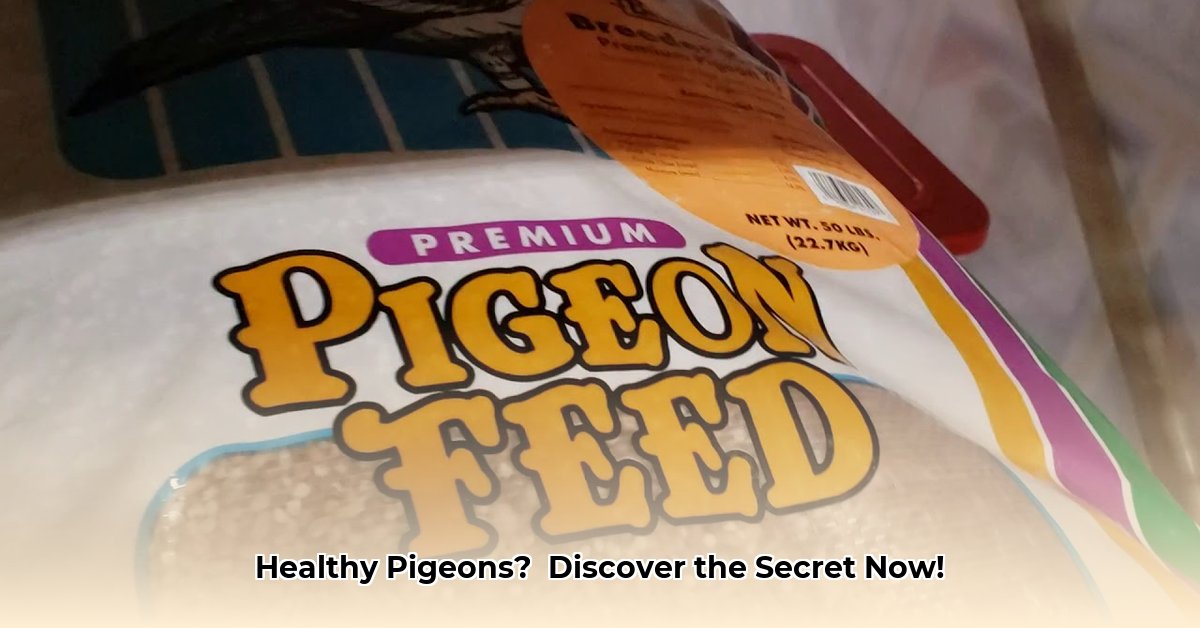
Pigeon Feed Tractor Supply: A Sustainable Approach to Caring for Your Feathered Friends
Want happy, healthy pigeons and a healthy planet? The seemingly simple act of feeding your pigeons can have a surprisingly large environmental footprint. This article explores how to make sustainable choices when purchasing pigeon feed from Tractor Supply and beyond, minimizing your impact and ensuring your birds thrive. We'll examine current practices, sustainable alternatives, and future trends in pigeon feed production, offering actionable steps you can take today. For more on sustainable coop supplies, check out this resource.
The Environmental Impact of Current Pigeon Feed Practices
Most commercial pigeon feed relies heavily on grains like corn and wheat. The production of these grains consumes significant resources: vast amounts of land, water for irrigation, and energy for farming and transportation. The transportation of these grains from farm to factory to store generates substantial carbon emissions. Furthermore, uneaten feed often ends up in landfills, adding to environmental waste. Brands like Purina and Audubon, available at Tractor Supply, offer convenience. However, more information is needed regarding their sustainability practices—from sourcing to transportation—to assess their full environmental impact. Isn't it crucial to understand the hidden environmental costs associated with our seemingly small choices?
Sustainable Alternatives: Minimizing Your Footprint
Fortunately, many sustainable alternatives exist for responsible pigeon feeding. By making conscious choices, you can significantly reduce your environmental impact.
Prioritize Local Sourcing: Purchasing grains from local farmers dramatically reduces transportation emissions, supporting local economies and minimizing your carbon footprint. Think of it as a "farm-to-coop" approach! This significantly reduces the environmental impact linked to long-distance transportation.
Explore Alternative Protein Sources: Insects are emerging as a highly efficient and sustainable protein source. They require far less land and water than traditional grains, offering a compelling alternative for pigeon feed. While insect-based pigeon feed may seem unusual, it’s a rapidly developing field with promising potential.
Implement Smart Feed Management: Avoid overfeeding by closely monitoring your pigeons' consumption habits. This simple strategy reduces food waste and its associated environmental consequences. Proper storage also prevents spoilage, maximizing resource utilization.
The Future of Sustainable Pigeon Feed: Innovation on the Horizon
Exciting innovations are reshaping the sustainable pigeon feed landscape. Advancements in farming techniques aim to reduce resource consumption. Precise feeding systems are being developed to optimize feed distribution and minimize waste. Furthermore, technology plays a crucial role, enabling more efficient grain production and better tracking of feed usage. Imagine a future where technology predicts feed needs and automatically adjusts distribution, minimizing waste and maximizing resource efficiency! This level of precision is rapidly becoming a reality.
Your Action Plan for Greener Pigeon Feeding
Ready to make a difference? Here's a step-by-step guide to adopting more sustainable practices:
Research Sustainable Brands: Investigate the sustainability practices of various pigeon feed brands available at Tractor Supply and other retailers. Look for certifications and labels indicating commitment to environmentally responsible practices.
Evaluate Your Current Practices: Analyze your current pigeon feeding habits, identifying areas where you can reduce waste and make more eco-friendly choices.
Implement Gradual Changes: Don't feel overwhelmed! Begin with small, manageable shifts towards sustainable options. Every effort, no matter how small, contributes to a larger impact.
By making informed choices, you can contribute to a healthier planet, one pigeon at a time. Adopting sustainable pigeon-feeding practices isn't just a trend; it's a responsible approach to caring for your birds and preserving our planet.